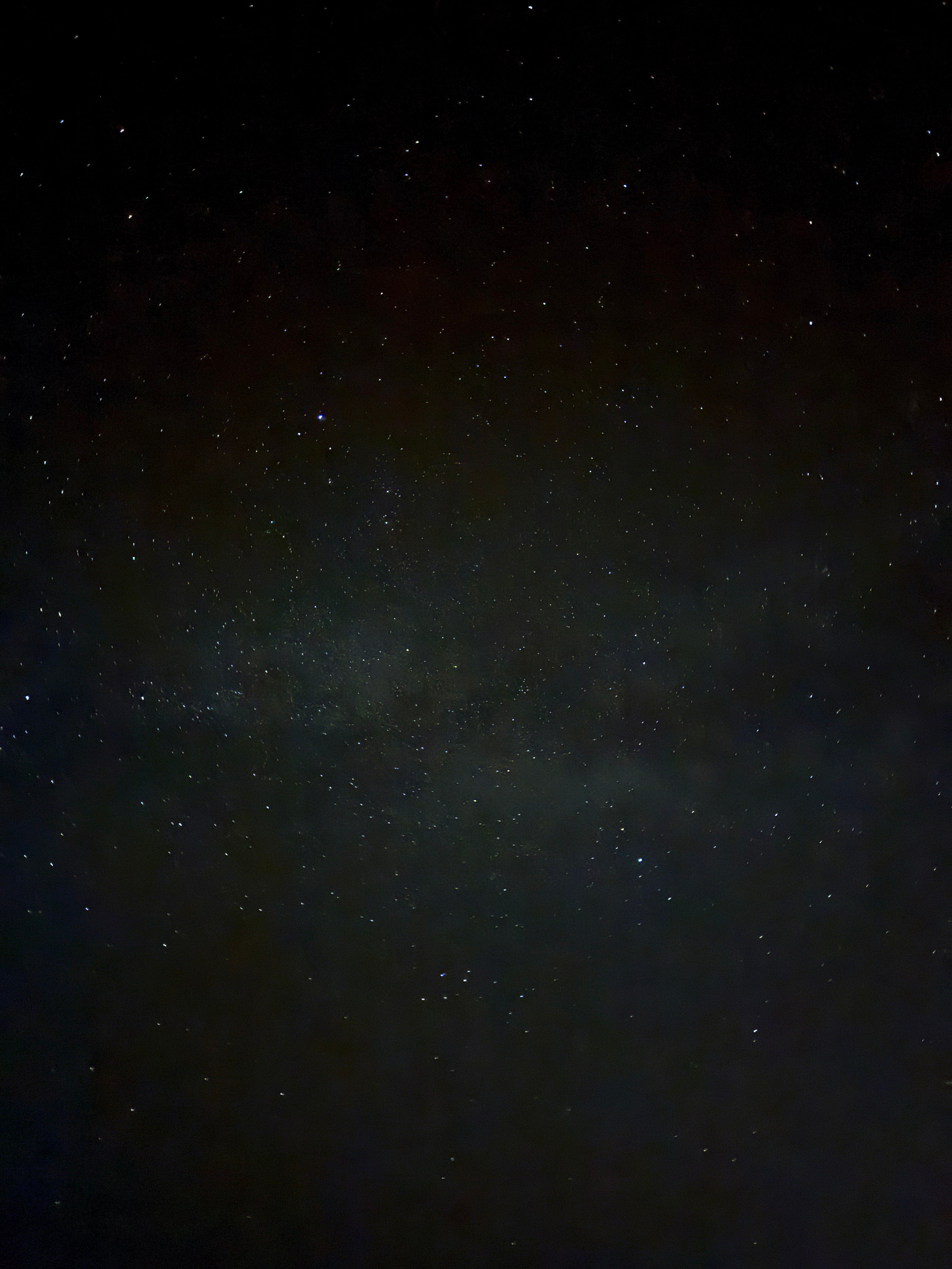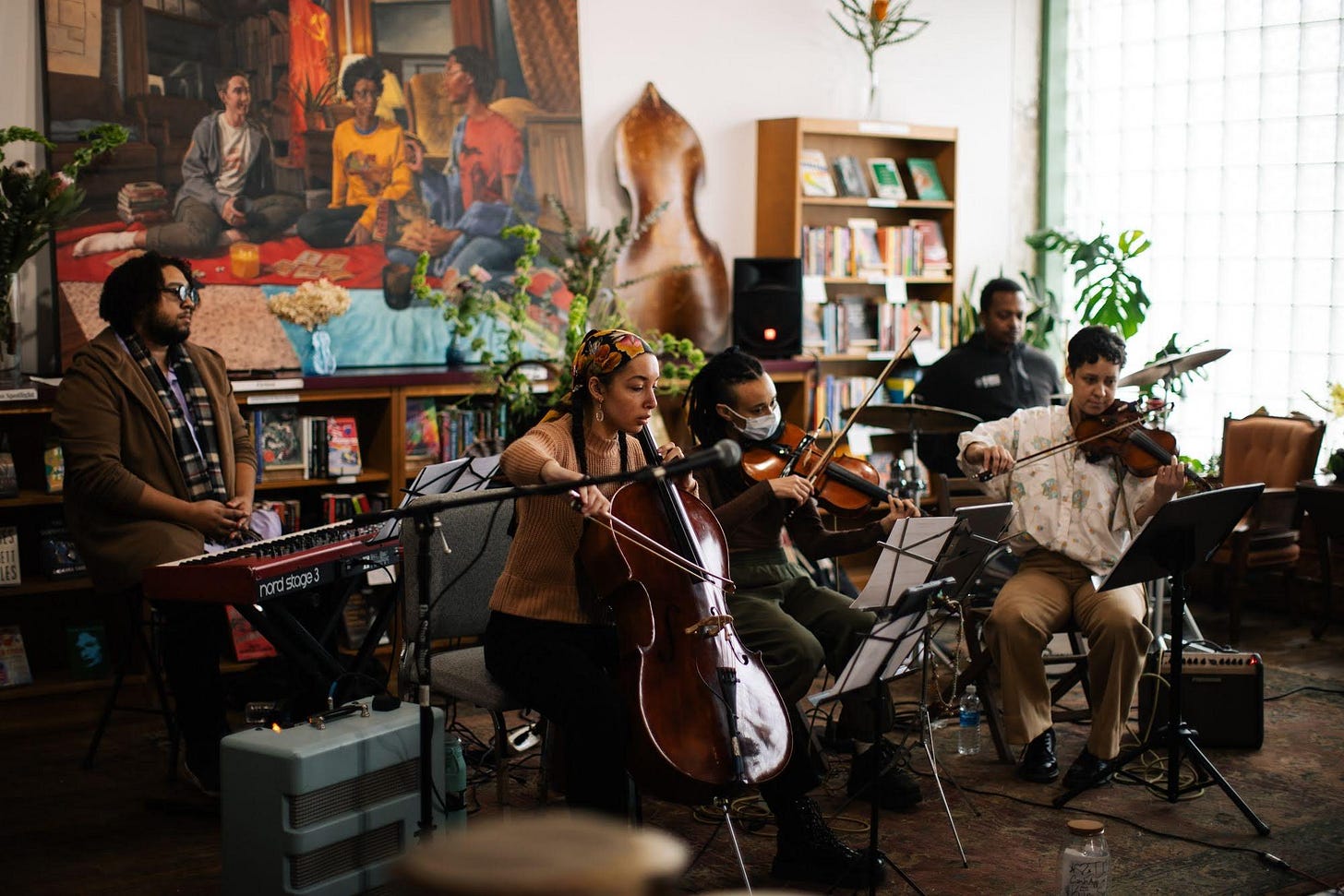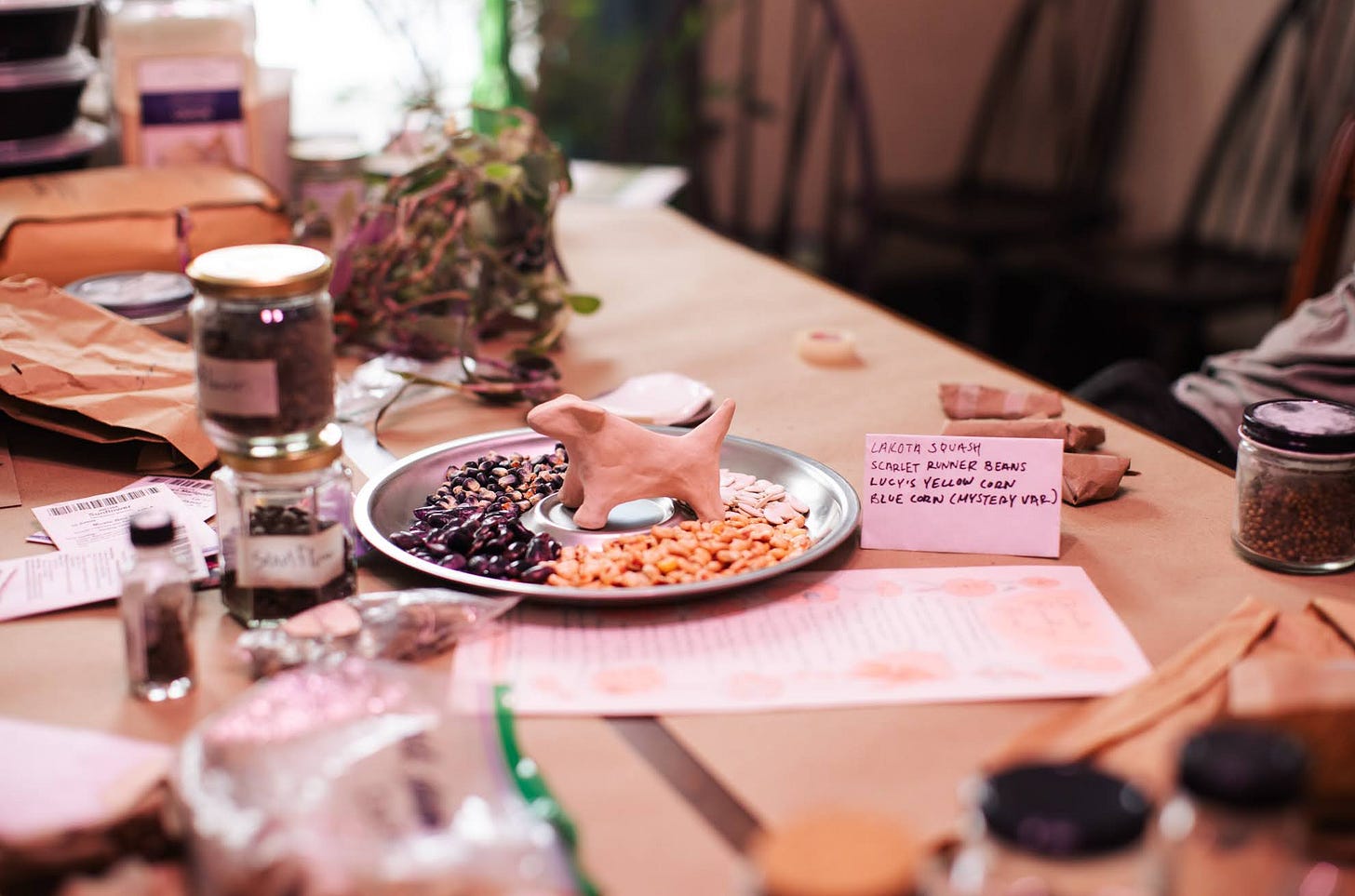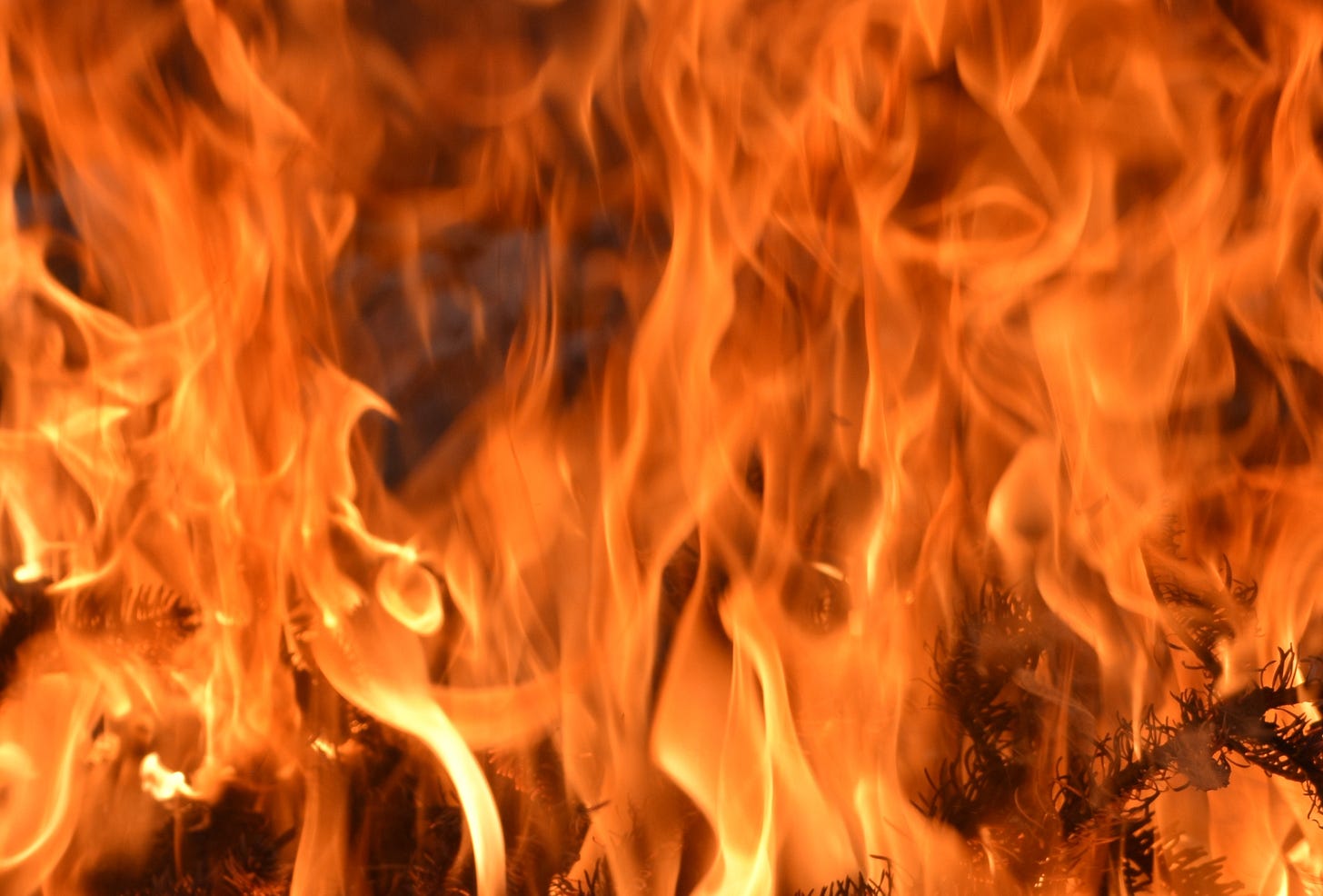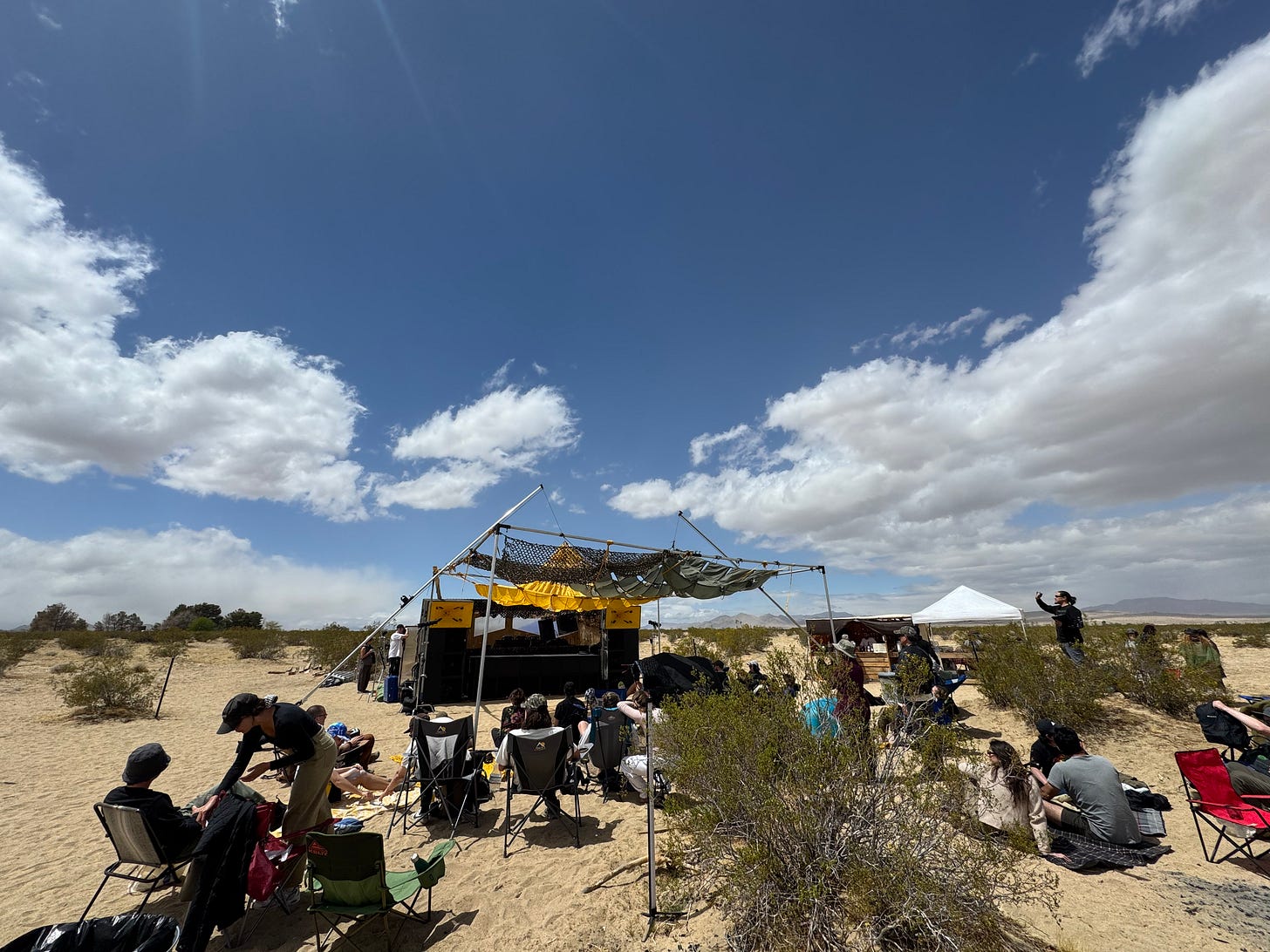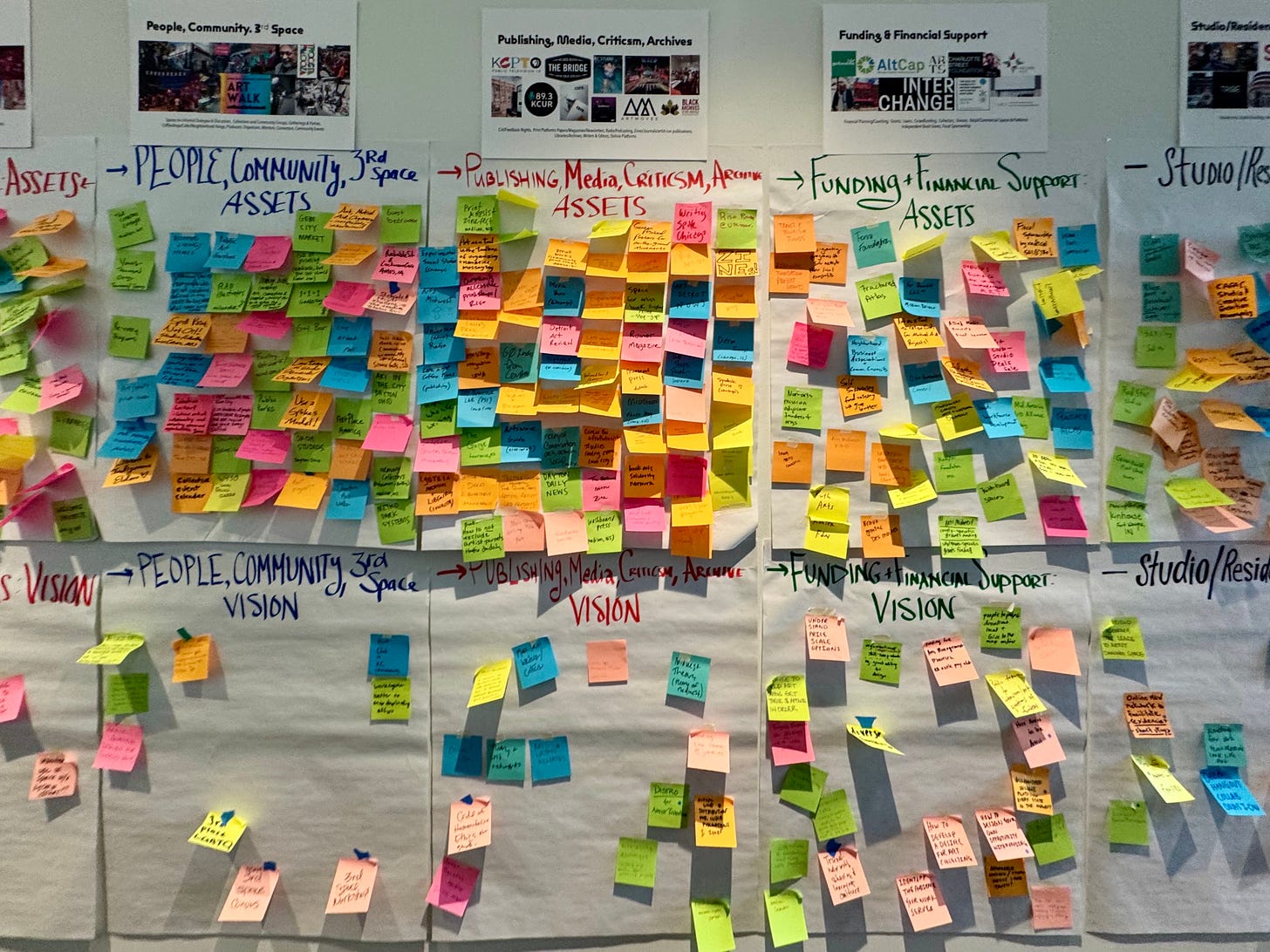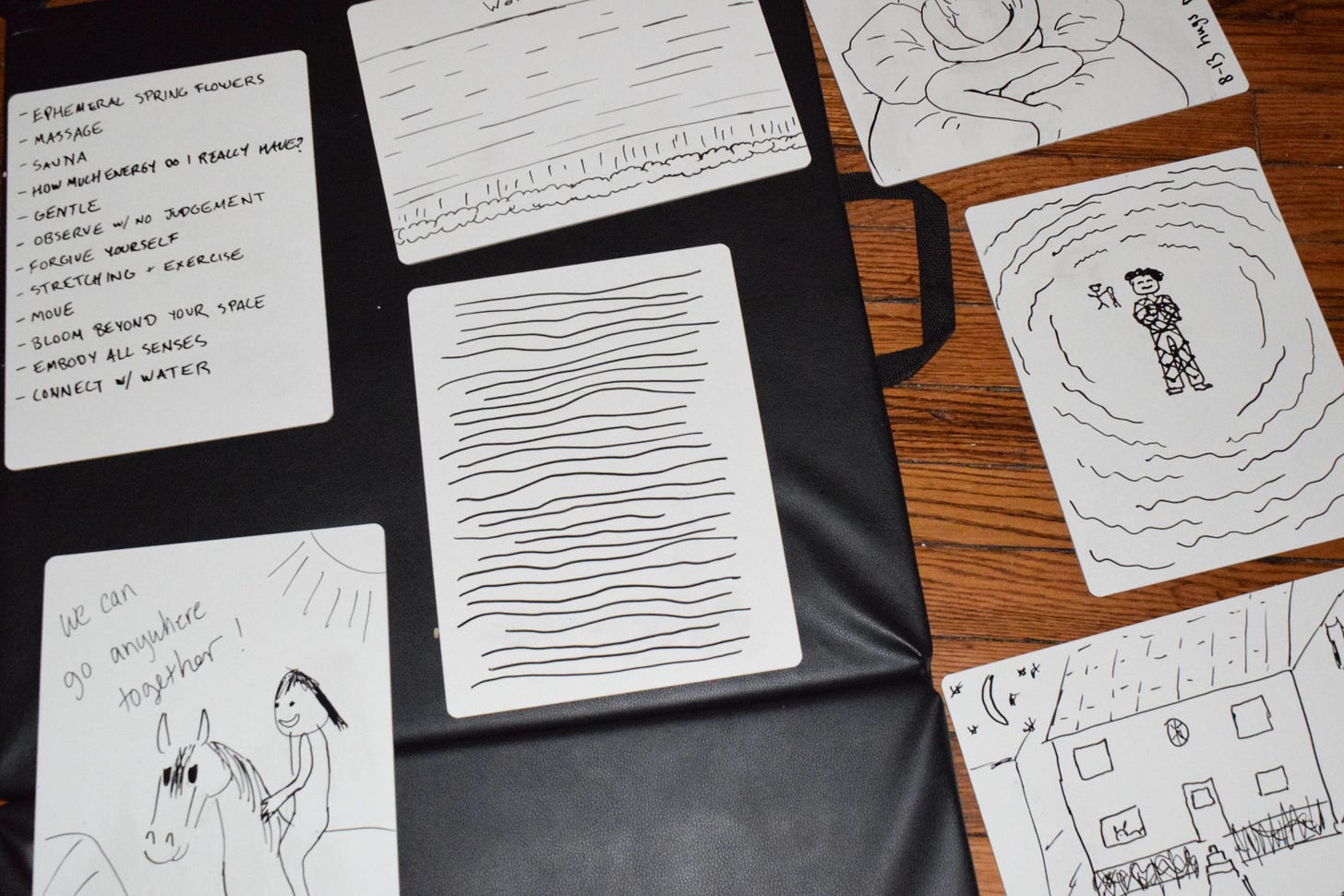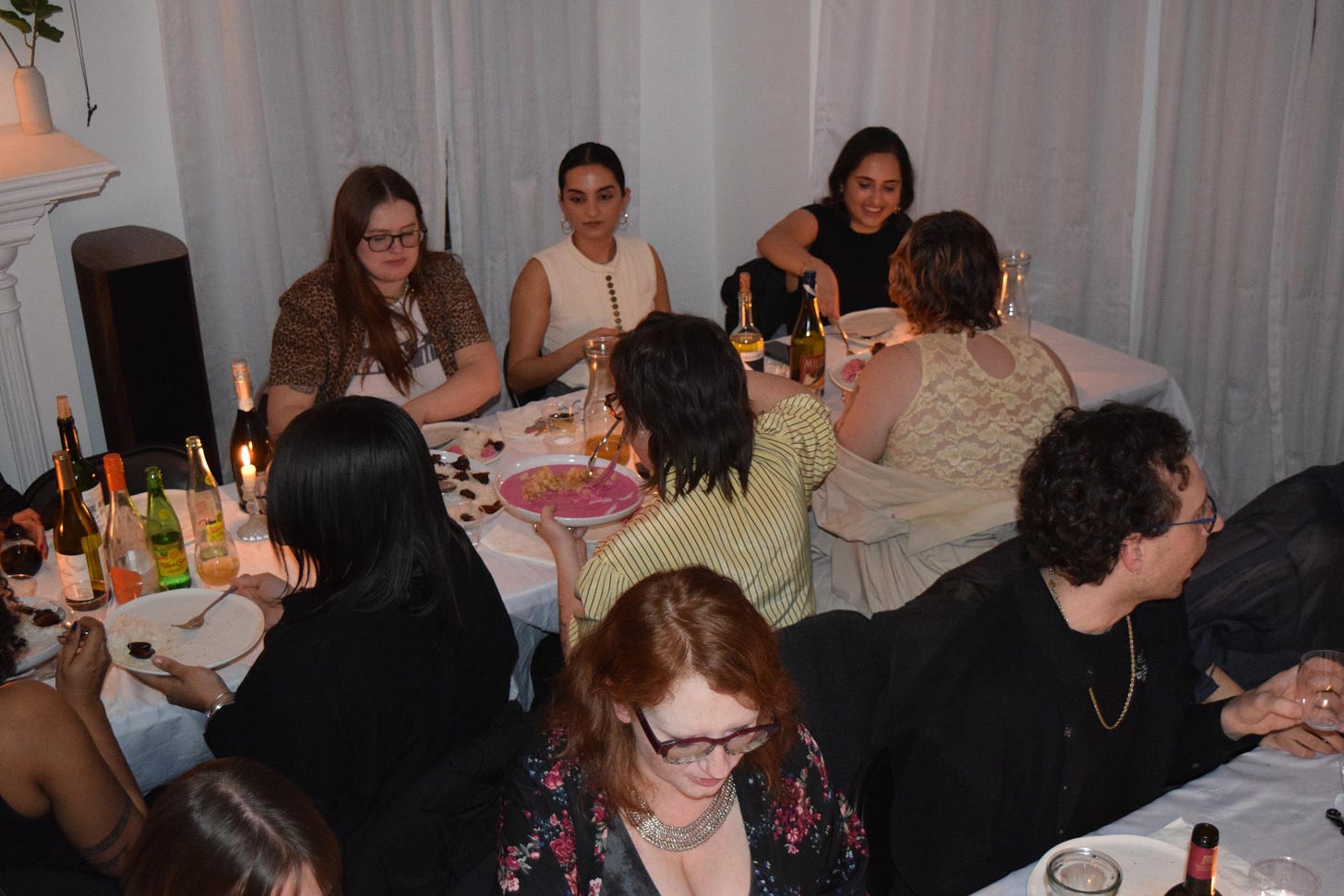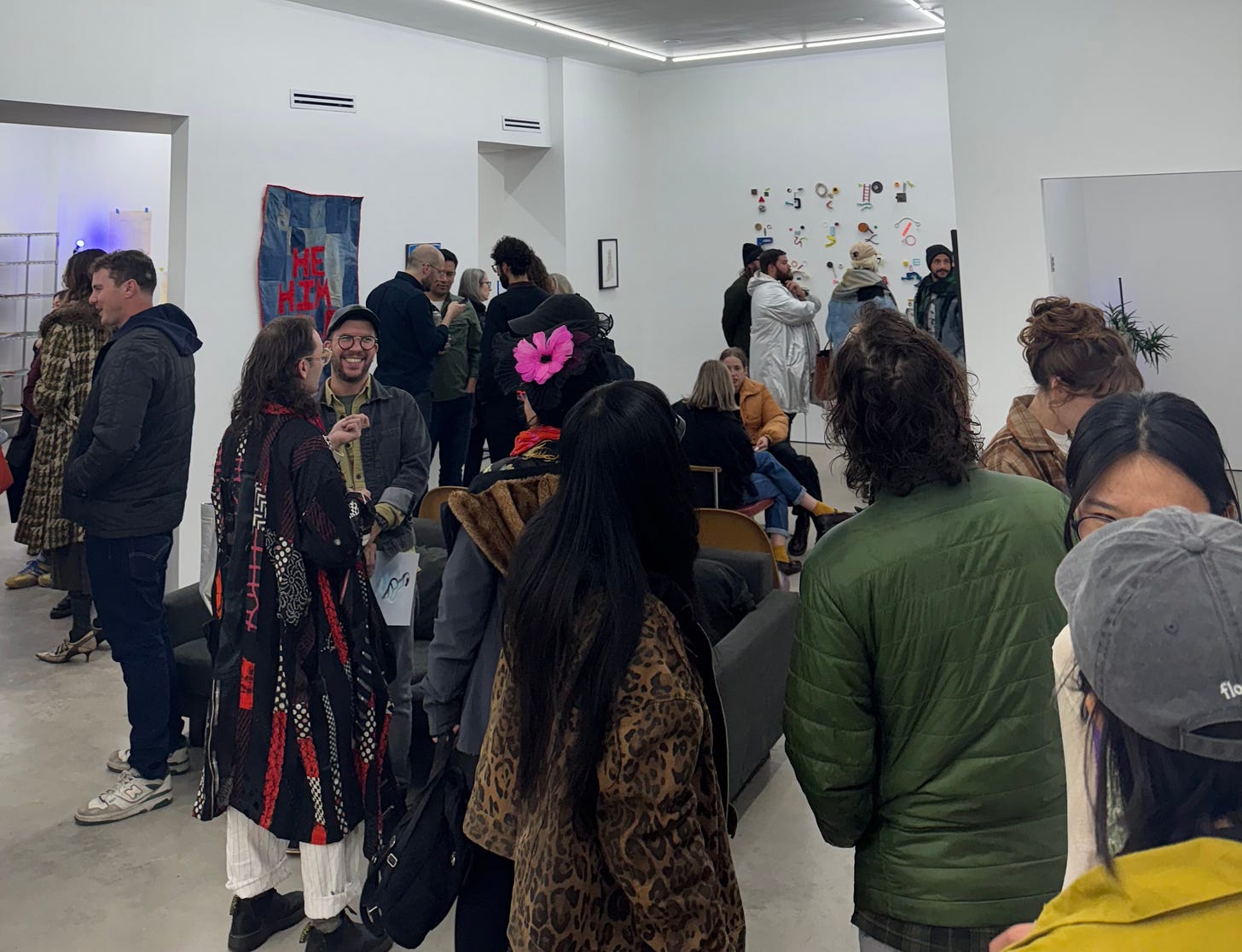Things That are Working Outside of My Inbox
Eight months later, three solutions surfaced.
I returned recently to Grace Lee Boggs. Everything in my inbox seems to be Not Working, yet everything beyond it Is Working, and I needed her help to understand why. As systems collapse and values evaporate, a significant portion of the online (inbox) discourse appears to have stalled out at simply tallying the disintegration. And while I agree we need to bear witness to the world, many of the writers and creatives I look to for guidance appear to have picked freeze over fight or flight. (Flight would have at least told us who is by our side.)
When I leave my inbox, the view changes. In-person events that reimagine our systems and values have picked up significant steam by means of attendance, funding, press, and feedback. I’d wager a bet they’ve become a productive, grounded, and tangible container for people to glimpse hope (Sue me for being a functional optimist). Stars shine until dawn breaks.
So, after taking eight months off from this newsletter, I’m coming back with three quotes from Grace Lee Boggs and three things that are working to lighten the night and remind us to stay focused, scale what helps, and drop what doesn’t. And if you want my help making these happen for your communities—write to me.
What’s Working #1: Time Is a Loop
Let’s start with three Grace Lee Boggs quotes:
“Evolution is not linear. Times interact.”
“Movements are born of critical connections rather than critical mass.”
“Love isn't about what we did yesterday; it's about what we do today and tomorrow and the day after.”
I opened Grace’s final book The Next American Revolution: Sustainable Activism for the Twenty First Century when I touched down in Detroit in 2022, having moved from five years of Brooklyn back to my Michigan roots. Boggs’ thinking in has probably guided my work more than any other thinker in the past three years. I’ve probably already talked about it on this newsletter; if so, it’s worth another nudge. Get it off your shelf; finally order it; chuck your phone in another room; crack it open; take a pass.
I’ve been applying Grace’s first quote above as a framework to dig into the past and unearth ideas for the present and future. It’s helped me see answers to questions like: “Has life always been hard? How have humans survived 200,000+ years with no emails? They must have had methods that are cheap, scaleable, and repeatable to get them through hard times, right?” (See also: Before Scotland, The Dawn of Everything, The Disappearance of Rituals.)
That conceptual framework has led the research—and ultimately the event production—behind the now-festival I run named Imbolc. We’ve gone from 1 event in 2023 to 9 this year celebrating the ancient Gaelic event that ushers in the start of spring, reaching 1,000 people now in Detroit. Five days of programming in 2025 organized by our intrepid event organizers (King, Maro, Meg, Christine, devon, Alex, Rachel, Farah, Immaculate Conception Collective & Catie) supported 27 artists and distributed nearly $12,000 to creatives, co-ops, and small businesses—all because there’s an opportunity to reclaim and reimagine a good idea. (Americans largely swapped Imbolc for Groundhog’s Day, which doesn’t seem like a fair trade to me.)
Imbolc is a framework from the past that, turns out, is pretty effective at bringing people together in arguably the darkest, grayest time of the year. It is almost as if they needed it then just like we do now. By taking the ritual off the shelf and adding it to our toolbelt, we realize how wielding an old power can help us find new strength.
Imbolc has also taught me the power of the Gaelic perspective of time-as-loop in lieu of time-as-linear. Ever year, we return to where nature left us a year ago. We can return to the season as if it is an old friend ready to listen to what’s happened. Allowing multiple times to interact helps us reflect on what we’ve done and where we need to go. And in a time where we can made to feel as if time and power are out of our hands, out of our control—reclaiming it means reclaiming agency and control.
“Evolution is not linear. Times interact.”
So, takeaway one: try and reclaim a time every year for a ritual or tradition—new or old to you. Invite others in. Help them replicate it the next year. See where it takes you, year after year.
What’s Working #2: Connection Generates Resilience
My day job life at DSCS and more throws curveballs on the regular—especially if you’ve been reading this over the years. To gather perspectives on resilience from startup leaders, organizers, and creatives, I attended the MdW Fest in Kansas City last November that brought together hundreds of creative leaders across the Midwest to share resources and build stronger inter-regional relationships. Then, in April, I flew to San Francisco then drove to Los Angeles to attend Gradient and hear fresh ideas from family, friends, and mentors.
Nearly universally, the same stagnant feeling I brought up before echoed across the Midwest and down the West Coast. (See Dario Gentili’s The Age of Precarity or Jen Pan’s conversation on Selling Social Justice with Joshua Citarella for more concrete examples as to why and where this came from over the last roughly 40+ years.) The crisis of community continues.
And yet—small, sturdy wins surround us.
As a 100-person music festival near Joshua Tree in the high desert, Gradient saw far-flung friends, organizers, and artists weather 30mph winds and temps from 35 to 85 to celebrate 17 artists’ techno, live electronic, post-Western, and ambient music. I ran into past collaborators and future friends from Minneapolis to Los Angeles; we danced under the Milky Way; we shared food, headlamps, sunscreen, and plans for the future.
MdW brought Public Media Institute, Public Space One, Charlotte Street, and at least 100+ more organizations and artists together to organize an exhibition, talk series, walking tours, and communal meals. I went to represent the Post Center Art Center, and warm leads on talks and funding unfurled into regional friendships. Resources and talks on mutual aid, alternative sustainability models, and leveraging art spaces for movement work were also recorded and shared for free on their archive.
Recurring events like Imbolc, Gradient, and MdW give our communities tangible containers to actually plot our way out of the mess. That structural layer—operations, programs, products, events—keep us in conversation. Tech and funding can help us make them happen, but in the complete absence of in-person time to meet people from across the country, I fear the feed will continue to divide and conquer. So, consider me a firm believer in the recurring in-person ritual and annual tradition. Small connections can change the course of our lives, it seems.
“Movements are born of critical connections rather than critical mass.”
So, takeaway two: never run from the collective tissue. Move toward it; Dissect, unfurl, detangle, nurture, grow. Resilience is waiting there.
What’s Working #3: Consistent Care Means Collective Power
The last Imbolc 2025 event was an intimate closing ceremony by Detroit-based guides—and my neighbors—Matthew Shur and Simon Gregor. It turned into a group therapy session where we grieved for the world around us, held each other, and set our intentions of care for the future.
So, this last solution is quick and self-explanatory. Power is found—again—when we care for each other, then calibrate for what’s next.
To offer the paragraph that ends with our third Grace quote:
“Love isn't just something you feel. It's something you do everyday when you go out and pick the paper and bottles scattered the night before on the corner, when you stop and talk to a neighbor, when you argue passionately for what you believe in with whoever will listen, when you call a friend to see how they're doing, when you write a letter to the newspaper, when you give a speech and give 'em hell, when you never stop believing that we can all be more than what we are. In other words, Love isn't about what we did yesterday; it's about what we do today and tomorrow and the day after.”
Takeaway three: care needs consistency. And when we take care of one another outside of our inbox, we can take care of the world.
Until next time,
x


